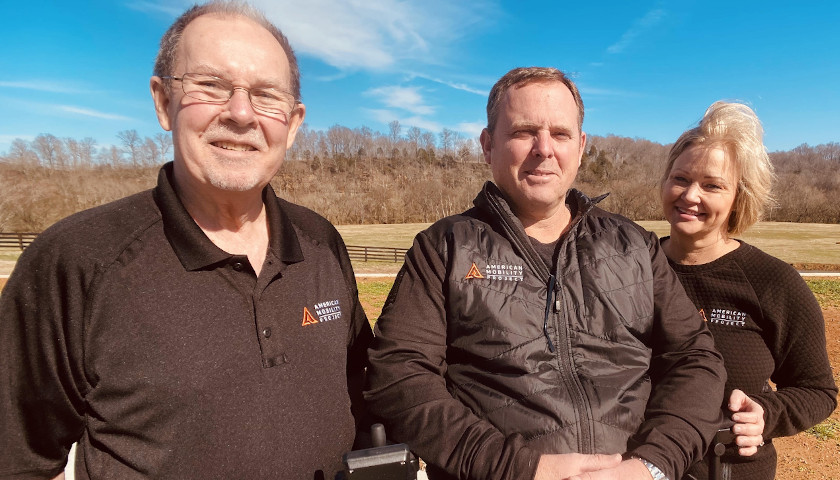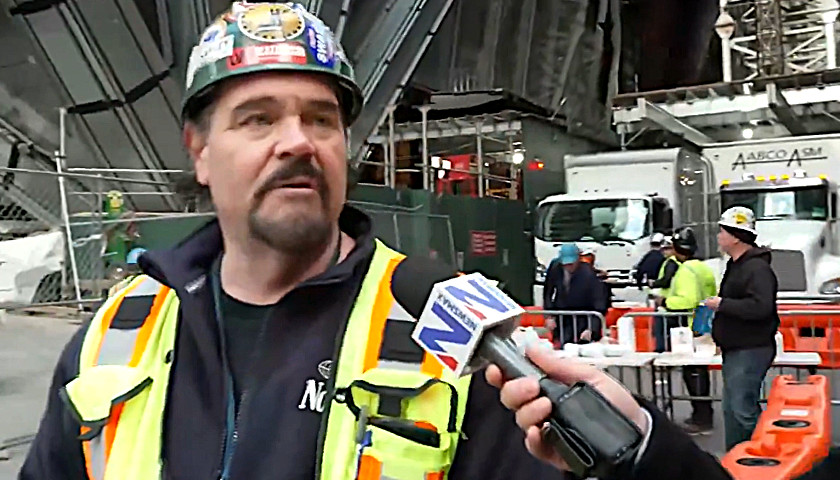ADAMS, Tennessee – Twelve years ago a helicopter accident in Iraq robbed Adams, Tennessee resident and U.S. Army veteran and helicopter pilot Gary Linfoot of the ability to walk.
Linfoot may have to use a wheelchair, but new, yet costly, technologies have enabled him to enjoy certain conveniences he otherwise would not.
And now, thanks to the new nonprofit, the American Mobility Project, Linfoot wants to share those technologies with other people in need.
In Iraq Linfoot’s helicopter had a mechanical malfunction, which caused it to lose power to the rotor system, he said.
“We hit (the ground) pretty hard. Immediately when we hit I felt my lower back explode. My legs just flopped to the side. So I suffered a spinal cord injury. A lot of that was due to the design of the seat,” Linfoot said.
Linfoot returned home after stints at, among other places, the Washington, D.C.-based Walter Reed Army Medical Center. Upon returning home, Linfoot realized he could no longer do the things he used to take for granted.
“A lot of things that I thought were gone forever in terms of what I could do and what I could accomplish started to come back to me,” Linfoot told The Tennessee Star at his home Wednesday. “Think of something simple like walking the dog.”
But Linfoot said a friend asked him if he was interested in what is known as an iBOT, a powered wheelchair designed to, among other things, walk up and down stairs. The iBOT, Linfoot said, also has four-wheel-drive capability.
Linfoot accepted an iBOT.
“With these features alone you start to regain some dignity. When you are out and about in social situations and talking to people we’re all designed to stand up and be eye-to-eye. When someone is in a wheelchair it is uncomfortable — not for the person in the wheelchair — but the person talking. You are below people’s line of sight. People bump into you. With the iBot you are up eye level with everybody,” Linfoot said.
“You feel normal again. Later on we ended up getting an exoskeleton (wheelchair), and it allows me to stand up and walk. I was able to stand up for the National Anthem for the first time in Bristol for a National Hot Road Association race. And I was able to walk my daughter down the aisle when she got married.”
Now, Linfoot said he wants to help others.
While speaking to different schools around the country, Linfoot said he noticed a lot of children and civilians did not have access to the same equipment he had. And he also said he didn’t know of enough nonprofit organizations to help.
“The equipment is very expensive,” Linfoot said. “An iBOT costs $30,000 and an exoskeleton is $100,000.
And so the American Mobility Project, a 501C3 nonprofit, was conceived.
According to its website, the organization aims to provide equipment, resources, and adaptations to enhance independent living for people with disabilities.
For more information visit AmericanMobilityProject.org
– – –
Chris Butler is an investigative journalist at The Tennessee Star. Follow Chris on Facebook. Email tips to [email protected].








